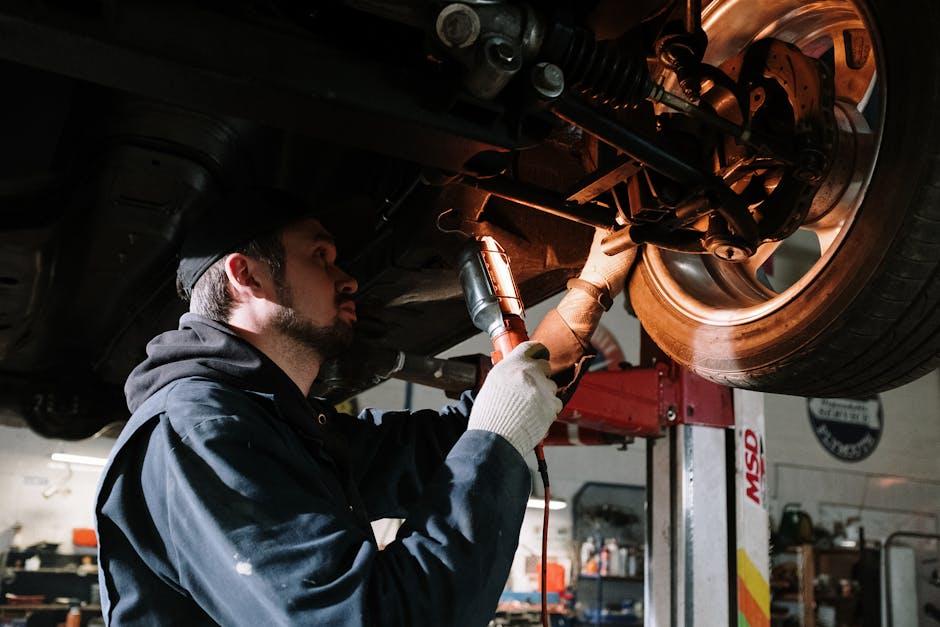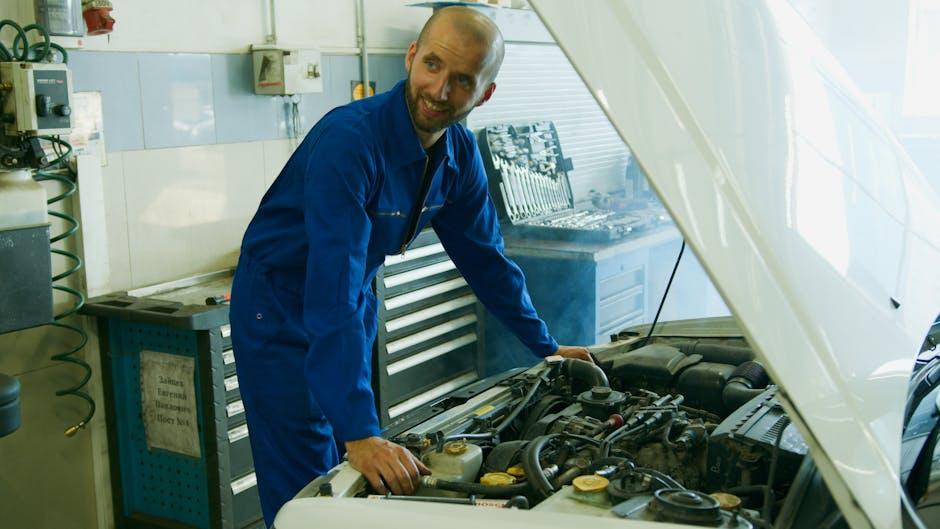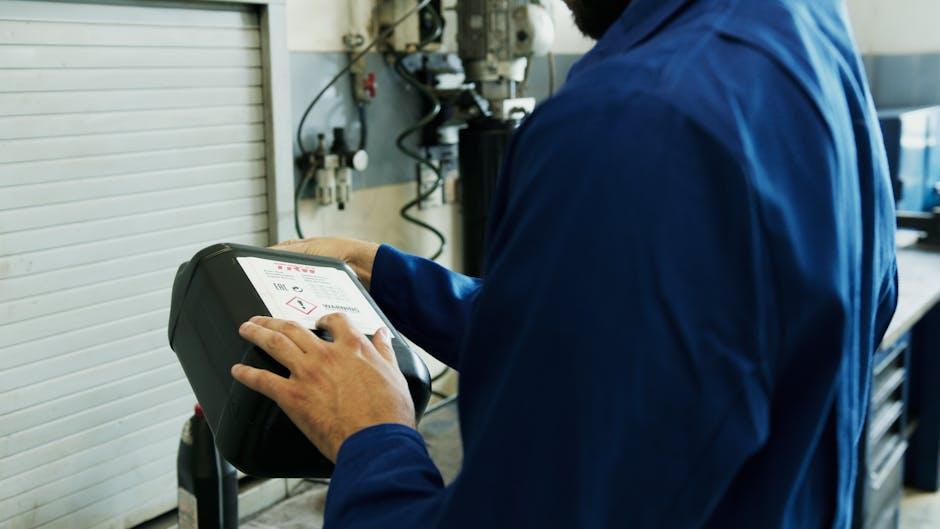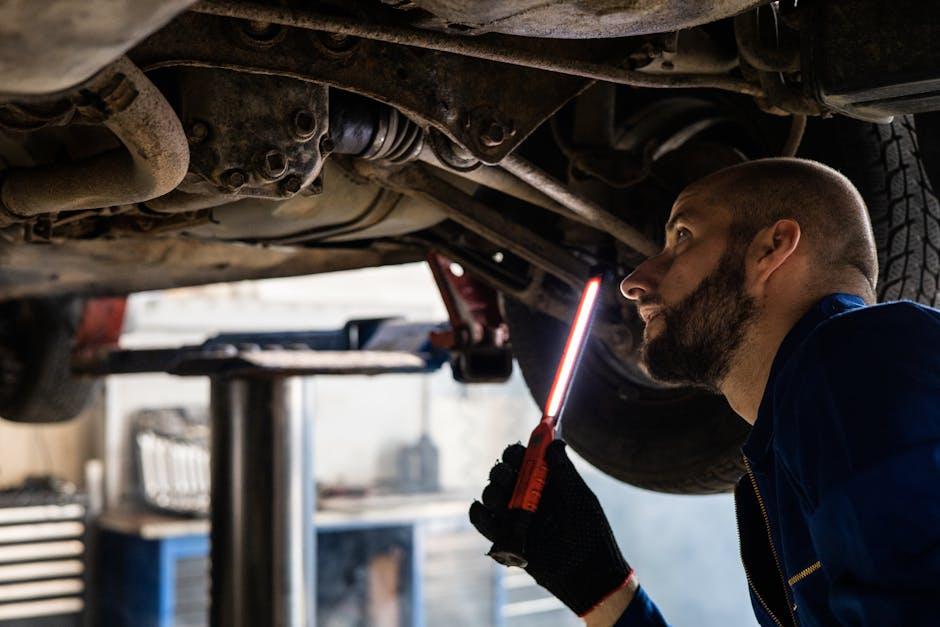In an age the place expertise drives not solely our automobiles but additionally the way in which we keep them, having the proper instruments at your fingertips can flip any automobile proprietor right into a savvy mechanic. Think about diagnosing engine troubles, monitoring down pesky sensors, or just protecting your trip in prime form—all and not using a pricey journey to the store. Crafting your customized automobile diagnostic instrument package is extra than simply assembling gear; it’s about empowering your self with information, precision, and a touch of hands-on ingenuity. This DIY information will steer you thru the important elements and sensible additions to construct a customized toolkit tailor-made to your automotive adventures. Whether or not you’re a seasoned gearhead or simply beginning your automotive journey, your good diagnostic companion awaits.
Desk of Contents
- Selecting Important Instruments for Your Customized Diagnostic Package
- Understanding Automobile Techniques to Tailor Your Software Choice
- Step-by-Step Meeting of Your Customized Diagnostic Toolkit
- Upkeep Tricks to Preserve Your Diagnostic Instruments Correct and Dependable
- In Abstract

Selecting Important Instruments for Your Customized Diagnostic Package
When assembling a customized diagnostic package, give attention to versatility and reliability to make sure each instrument serves a definite goal throughout your troubleshooting adventures. Begin with an OBD-II scanner, the cornerstone of any trendy diagnostic setup, able to studying engine codes and offering stay knowledge streams. Complement this with fundamental hand instruments equivalent to screwdrivers, pliers, and a digital multimeter — every a necessary ally for digging deeper into electrical methods or testing elements on the fly. Precision is essential, so do not overlook the worth of a great high quality set of check leads and a Bluetooth-enabled module for wi-fi diagnostics.
To maintain your package well-rounded, think about including specialty gadgets that enhance your diagnostic energy with out overcrowding your toolbox. Right here’s a breakdown of must-have gadgets tailor-made for sensible effectiveness:
- OBD-II Scanner: For complete engine diagnostics
- Digital Multimeter: Measures voltage, present, and resistance with accuracy
- Take a look at Leads & Probes: Guarantee exact electrical testing
- Infrared Thermometer: Detect overheated elements rapidly
- Bluetooth Adapter Module: Permits smartphone app integration
| Software | Main Use | Profit |
|---|---|---|
| OBD-II Scanner | Engine code evaluation | Fast fault identification |
| Multimeter | Electrical measurements | Pinpoints voltage and continuity points |
| Infrared Thermometer | Temperature checks | Non-contact overheating detection |
| Bluetooth Module | Wi-fi diagnostics | Distant entry and knowledge logging |

Understanding Automobile Techniques to Tailor Your Software Choice
Each automobile is a posh meeting of interwoven methods, starting from the engine and transmission to {the electrical} and security elements. Earlier than you embark on assembling your diagnostic toolkit, it is essential to familiarize your self with these methods to grasp the particular diagnostic wants every may current. For example, older vehicles rely closely on mechanical diagnostics, whereas trendy automobiles prioritize digital and software-based troubleshooting. Recognizing these variations helps you keep away from pointless purchases and equips you with instruments that instantly handle your automobile’s distinctive challenges.
When customizing your toolkit, think about the core methods you will most often interact with, equivalent to:
- Engine Administration: Instruments for studying error codes and monitoring sensor knowledge.
- Brake and Suspension: Gadgets to evaluate ABS performance and suspension well being.
- Electrical Diagnostics: Multimeters and wiring diagrams for tracing fault traces.
- Emission Controls: Fuel analyzers for making certain compliance with emission requirements.
A sensible strategy consists of categorizing your instruments by system, which might appear like this:
| Automobile System | Really useful Instruments |
|---|---|
| Engine | OBD-II Scanner, Compression Tester |
| Electrical | Digital Multimeter, Circuit Tester |
| Braking | Brake Fluid Tester, Strain Gauge |
| Emission | Fuel Analyzer, Vacuum Gauge |
By structuring your toolkit round these pivotal methods, not solely do you streamline diagnostics, however you additionally improve your effectivity throughout repairs and routine checks—a wise technique for any DIY mechanic.

Step-by-Step Meeting of Your Customized Diagnostic Toolkit
Start by gathering the important elements of your toolkit. Deal with versatility and compatibility—select diagnostic cables and adapters that join with a spread of car makes and fashions. Incorporate a dependable OBD-II scanner with multi-protocol help to cowl fundamental to superior diagnostics. Don’t overlook important hand instruments like screwdrivers, pliers, and wire strippers; these will support in fast repairs or changes throughout testing. Arrange these instruments effectively with labeled compartments or magnetic trays, making every part simply accessible and decreasing downtime when trying to find the proper piece.
Subsequent, combine sensible equipment to raise your toolkit’s performance. Contemplate compact digital multimeters for detailed electrical checks and Bluetooth interfaces for wi-fi diagnostics on the go. Compile your gear inside a sturdy, moveable case, making certain it presents each safety and comfort. A clear, customizable guidelines could be a game-changer—observe what you’ve, what wants substitute, and what to improve. This systematic strategy, paired with common calibration and software program updates in your digital units, ensures your diagnostic toolkit stays as sharp as your troubleshooting abilities.

Upkeep Tricks to Preserve Your Diagnostic Instruments Correct and Dependable
To keep up your diagnostic instruments in peak situation, common calibration and cleansing are important. Grime, mud, and moisture can severely influence the accuracy of delicate digital elements. Use a tender microfiber fabric to softly wipe screens and connectors after every use. For the calibration course of, discuss with the producer’s tips to make sure that sensors and software program are correctly aligned. Keep in mind: a miscalibrated instrument can result in incorrect readings, inflicting extra troubleshooting complications than options.
Moreover, incorporate these sensible habits into your routine:
- Retailer instruments in a dry, temperature-controlled surroundings to stop corrosion and battery drain.
- Replace diagnostic software program often to profit from improved algorithms and new automobile profiles.
- Examine cables and connectors for put on earlier than each use to keep away from intermittent faults and sign loss.
- Use protecting circumstances with padding to defend your toolkit throughout transport.
| Upkeep Process | Frequency | Software Affect |
|---|---|---|
| Calibration Examine | Each 3 months | Excessive accuracy |
| Software program Updates | Month-to-month | New options & fixes |
| Visible Inspection | Earlier than every use | Prevents downtime |
| Cleansing Connectors | After every use | Ensures sign readability |
In Abstract
As you shut the hood on this information, do not forget that crafting your customized automobile diagnostic instrument package is extra than simply assembling instruments—it’s about empowering your self to grasp the heartbeat of your automobile. With every fastidiously chosen instrument, you’re not solely making ready for the sudden but additionally embracing the satisfaction that comes from hands-on downside fixing. Whether or not you’re a seasoned gearhead or a curious DIYer, your customized toolkit is a testomony to ability, persistence, and fervour. So gear up, keep curious, and let each flip of the wrench be a step towards mastery beneath the hood.



